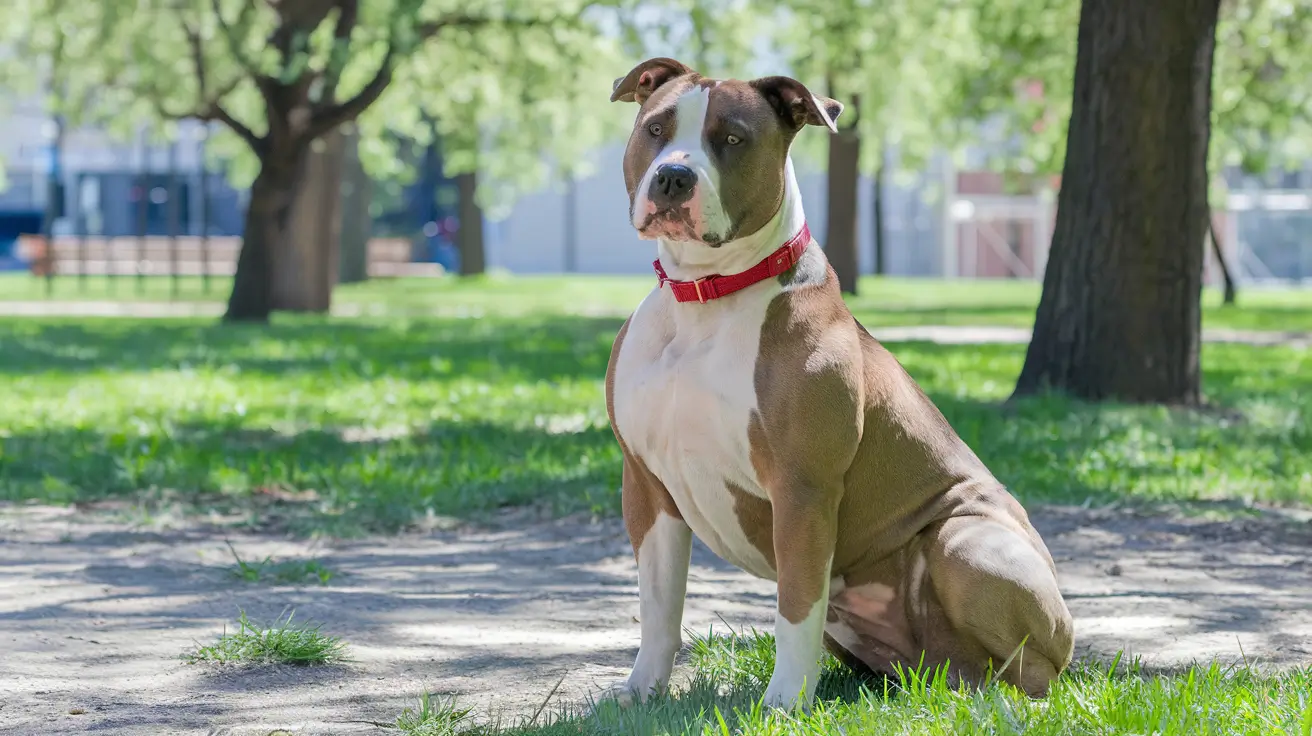Introduction to the American Pit Bull Terrier
The American Pit Bull Terrier is a breed with a rich and complex history. Originating in England, these dogs were initially bred for bull baiting, a practice that has long been outlawed. As they made their way to the United States, their role shifted to dog fighting, a dark chapter in their history. Despite these beginnings, Pit Bulls have shown themselves to be loyal and affectionate companions, often forming strong bonds with their families.
The Misunderstood Breed: What Defines a Pit Bull?
The term "Pit Bull" is often misunderstood and misused. It does not refer to a single breed but rather serves as a collective label for several breeds, including American Staffordshire Terriers, American Bulldogs, Bull Terriers, and Staffordshire Bull Terriers. This broad categorization can lead to confusion and misrepresentation of these dogs, which are not recognized as a distinct breed by major kennel clubs.
Physical Characteristics and Traits
Pit Bulls are medium-sized dogs known for their muscular build and athletic appearance. Males typically weigh between 35 and 70 pounds and stand 18 to 21 inches tall, while females are slightly smaller, weighing 30 to 60 pounds and standing 17 to 20 inches tall. They have a short, smooth coat that comes in various colors, including black, blue, brindle, and fawn, adding to their striking appearance.
Health Considerations for Pit Bulls
While generally healthy, Pit Bulls can be prone to certain health issues. Common concerns include allergies, which can cause skin irritation and hair loss, and hip dysplasia, a genetic condition affecting the hip joint. Cataracts, leading to vision loss, and obesity, which can exacerbate other health problems, are also potential issues. Regular veterinary care, including checkups and preventative measures, is crucial to maintaining their health.
Proper Nutrition for Pit Bulls
A balanced diet is essential for a Pit Bull's health and well-being. Given their tendency to gain weight easily, it is important to choose a diet low in fat and calories but rich in protein to support their muscular build. Consulting with a veterinarian can help in selecting the right food based on the dog's age, health, and activity level. Portion control and a consistent feeding schedule are also vital to prevent obesity.
Training and Behavioral Insights
Pit Bulls are known for their affectionate and outgoing personalities. With the right socialization and training, they can make excellent family pets. They are intelligent and eager to please, which makes training relatively straightforward. However, strong-willed tendencies mean that consistent positive reinforcement is key. Without proper training, they may become reactive in unfamiliar situations.
Exercise and Activity Needs
High-energy Pit Bulls require regular exercise to maintain their physical and mental health. Activities such as walks, fetch, and agility training are ideal for keeping them engaged. At least 45 minutes to an hour of exercise daily is recommended. Routine and structure are important, as they thrive in environments where they can connect actively with their owners.
Grooming Essentials
Pit Bulls have low grooming needs due to their short, dense coat. Regular brushing with a slicker brush or rubber grooming tool helps manage their moderate shedding, especially during spring and fall. While professional grooming is not typically necessary, maintaining their coat and addressing common issues like tear stains and ear infections are important for their overall health.
Understanding Pit Bull Behavior and Socialization
Pit Bulls are social creatures that can develop anxiety if not properly socialized. Early exposure to different people, environments, and experiences is crucial in helping them become well-adjusted adults. Effective socialization strategies and positive reinforcement can mitigate anxiety and ensure they are comfortable in various situations.
Finding the Right Home for a Pit Bull
The ideal home for a Pit Bull is one with an active family that enjoys outdoor activities. Prospective owners should be prepared to invest time in training and socialization, as these dogs require a committed environment to thrive. Their strong-willed nature means they need guidance to learn appropriate behaviors, making a dedicated owner essential.
Common FAQs About Pit Bulls
Many questions arise regarding Pit Bulls, particularly about their suitability as family pets. While their history may concern some, with proper training and socialization, they can be loving and loyal companions. Understanding their background and needs is key to dispelling myths and promoting a positive image of this often misunderstood breed.
Conclusion: Embracing the Pit Bull as a Loyal Companion
The American Pit Bull Terrier can be a devoted and affectionate family member when raised in a nurturing environment. Their history, while complex, does not define their potential as loving companions. By promoting responsible ownership and understanding their unique needs, Pit Bulls can lead happy, healthy lives, enriching the lives of those who welcome them into their homes.






